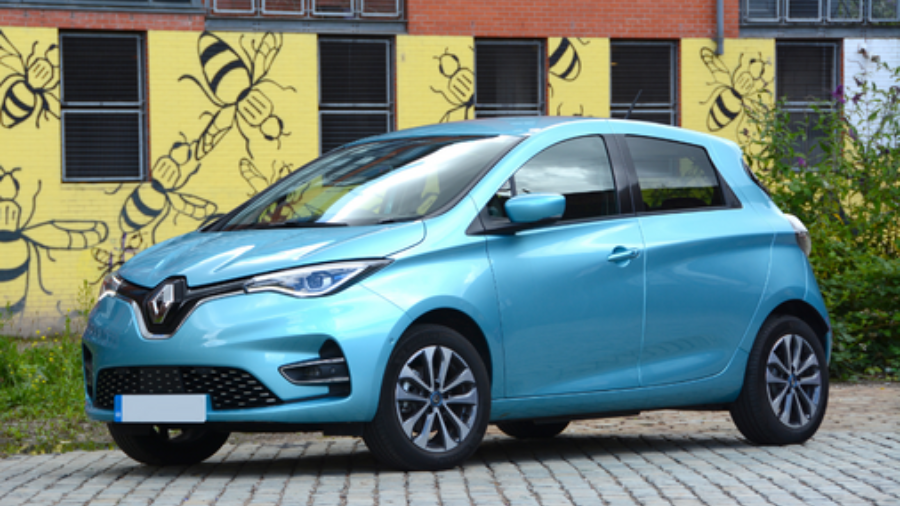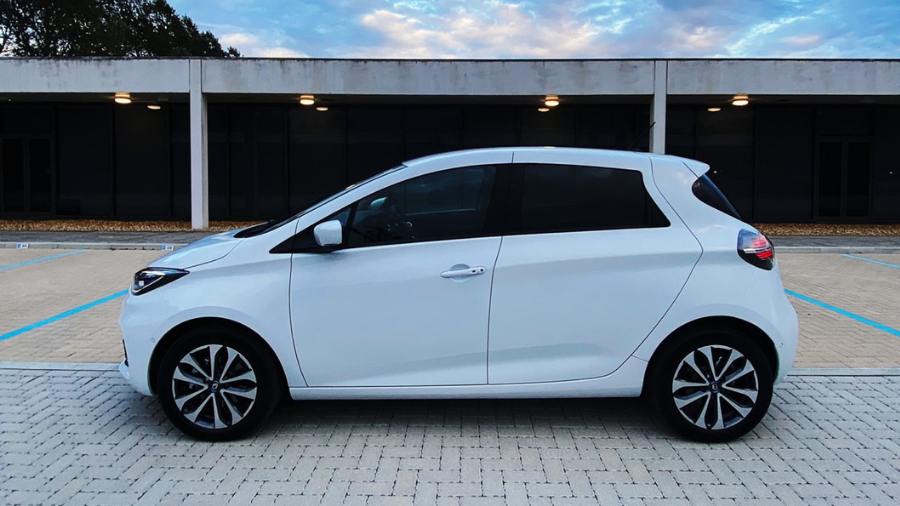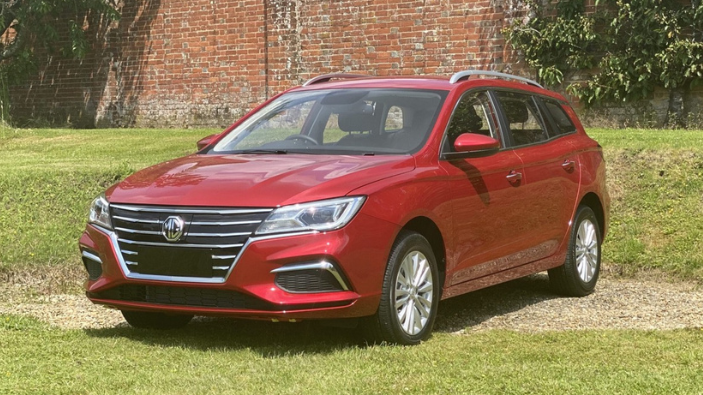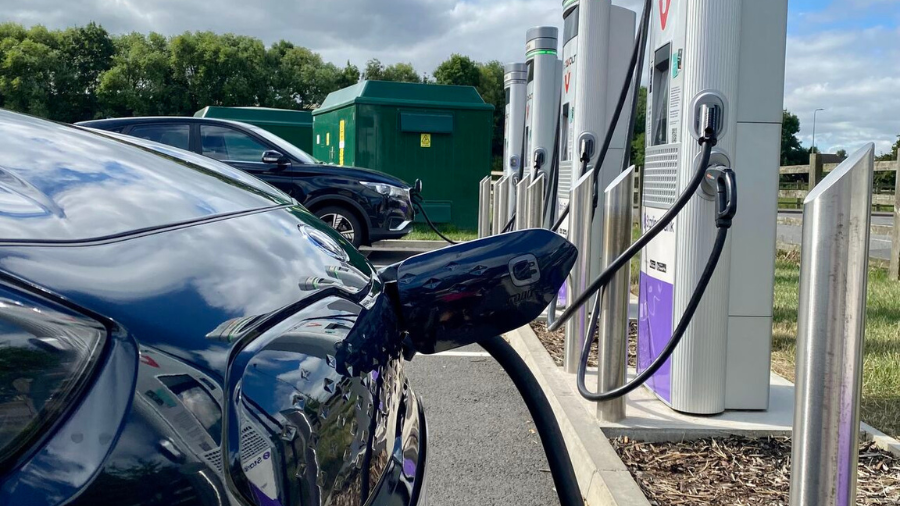The Ultimate Guide to Leasing an Electric Car
Leasing an electric car is just like renting a car when you go on holiday, but for a much longer time. It’s a great way to drive a new car with predictable monthly costs.
Are you ready to go electric?
Want to know if an electric car is the right choice for you?
Join in with our simple online quiz to find out more.
How do you lease an electric car?
If you’ve ever hired or rented a car before, it’s just like that, but you keep the car for a few years.
The best way to get started is to get some quotes for a few different cars. Just enter some basic details and pick a car you’re interested in. Then you’ll get an idea of how much it costs and whether it’s right for you.
Why lease with ElectriX?
At ElectriX, we’re all about making it simple for you to get behind the wheel of a new electric car. Whether it’s your first or you’re upgrading, we’re with you all the way, making it simple. Just like it should be.
We’ve made sure we’re the only place you need to visit. So it’s not just leasing: we can help sort out your smart home charging and insurance to make your life that little bit easier too.
We’re working together with CBVC Vehicle Management Limited, a broker with vast experience in the leasing market and strong connections with manufacturers, dealers and leasing companies.
You can see our range of cars to lease, some are available to drive away in as little as 30 days.
If you know what you want to drive, you can choose the exact car you want, brand new from the factory. What’s your favourite colour? What battery size do you want? Do you want a certain trim package? Choose any of the manufacturer’s options and then your car of choice will arrive at your house – with charge in the battery and ready to go.
Or if you want to get behind the wheel straight away, you can choose one that’s already built – and sometimes even pick up a special offer on it.
Businesses love leasing as well because of the predictable costs and being able to offset it against tax. And that’s not just big businesses – it’s popular with small businesses too.
How much does it cost to lease an electric car?
This depends on a few different things.
The car you choose: If you want a high-end Tesla or Porsche, the lease will cost more than a little supermini. It also depends on the options you choose – they’ll all affect what you pay each month.
How you’ll use it: How many miles will you cover in a year? And do you want to cover service and maintenance yourself, or would you like the peace of mind of a maintenance package with predictable costs?
You: You can choose how long to lease for and how much to pay up front – which all alters the cost.
With most lease companies you can get loads of different quotes with different mileage amounts to help you compare costs.
What’s the cheapest electric car to lease?
Generally, the cheapest electric cars you can lease are superminis like the Vauxhall Corsa-e, Fiat 500e and Smart EQ Forfour. These compact cars are great for getting about town and are free to run in emission charging zones.
What’s the best electric car to lease?
It depends on what you want and where you drive. There are modern electric versions of almost every type of car now so if you want an SUV, supermini, estate, hatchback or sports car, you’ll find something that’s right for you.
How much does it cost to lease an electric car battery?
The battery is included in the lease – so you get the keys to a new car that’s ready to go. With some very early electric cars – like the early Renault ZOE – you could rent the battery on its own. Battery technology has improved so much now that it’ll last years longer than your lease.

How does leasing an electric car work?
It’s just like renting or hiring a car. You make an initial payment, make monthly payments, then hand your car back at the end of the contract. It’s a simple arrangement that’s great for people who like driving a new car, and it’s a popular way for people to try out electric cars.
What sort of electric car can I lease?
You can lease any car you can buy. And because you’re leasing a new vehicle, you can choose exactly what you want from the manufacturer’s options: battery size, colour, interior packs, styling kits, wheels and more.
How long is an electric car lease?
Most people go for somewhere between two and five years. Generally your monthly payment will be lower if you pick a longer lease, but it’s worth playing with the figures on the lease company’s website to understand the difference.
How does insurance work when you’re leasing an electric car?
During your lease period, it’s up to you to keep the car insured. It’s also important to let your insurer know you aren’t the registered owner or keeper.
There are some important details you should check when you’re choosing an electric car insurance policy because different insurers have different levels of cover.
With electric car insurance from Allianz through ElectriX, for example, you get cover for charging cables and wall boxes, full battery cover for accidental damage, fire and theft, and recovery to the nearest charge point if you run out of charge in the UK.
How does servicing and maintenance work when you’re leasing?
While you’ve got the car, you’re in charge of looking after it. That means things like regular services, tyres and general maintenance.
When you lease an electric car, you can also get a ‘maintenance contract’ to keep the car in tip-top condition. You’ll pay a bit more for this but it will cover the costs of upkeep, repairs, MOTs and tyres. Some include puncture repairs too. So you don’t have to worry about finding the cash for work on the car as it’s all included in the fee.
Just bear in mind that it doesn’t cover abuse – so no wheelspins or rally special stages, please…
How does car tax work when you’re leasing an electric car?
Simple – you don’t pay anything because there’s no car tax (or vehicle excise duty, to use the proper name) on electric cars at the moment (February 2024). If this changes, you’ll need to cover it yourself.
Even though it won’t cost you anything, you’ll still need to renew it online every year to keep your car road legal.
How does breakdown cover work when you’re leasing?
Manufacturers often include breakdown cover with new cars, which normally covers between one and three years. If you take out a maintenance package you’ll be covered for the whole lease too. And some insurance companies include breakdown cover as part of the deal.
How does an MOT work when you’re leasing?
New cars need an MOT after three years – and if you take out a maintenance contract, your MOT costs are part of the package. If you don’t have a maintenance contract, you’ll need to keep the car covered with a current MOT certificate, which you’ll need to pay for.

How does the warranty work when you’re leasing?
Because it’s new, you get a full manufacturer’s warranty. You simply take the car to your local franchised dealer. If you have any problems then drop your lease company a line and they’ll take it up with the manufacturer.
What condition does the car need to be in when I give it back?
At the end of the lease you need to give the car back in good condition. Lease companies are realistic, so they’re not expecting it back in showroom condition. After all, you’ll have driven it several thousand miles a year!
Instead, the phrase they use is ‘fair wear and tear’. Now this sounds a bit vague, but there’s a specific definition from the BVRLA (British Vehicle Rental and Leasing Association). They say it’s ‘when normal usage causes deterioration to a vehicle’. Fair wear and tear doesn’t include damage from things like crashes or bumps, badly stowed items, poor treatment or negligence.
What this means is that they’ll expect the car back clean and in good shape. It’s worth having a proper check a couple of months before it’s due back. If there’s any damage like dents, scuffs or kerbed alloys you’ll need to get it fixed first. Or if you return the car with any damage on it, you’ll get a bill to pay a bit later.
You’ll also need to give back everything the car came with, including spare keys, service books, charging cables and locking wheel nuts. You should also make sure it’s got a bit of juice in the battery. Your lease company will normally give you a checklist or guide.
You also need to have stayed in the mileage limits you agreed when you started the lease. If you’ve driven further, you’ll need to pay a fee for that extra distance.
Can I trade in my car?
This depends on your lease company. Selling a car can be really stressful, so if you currently own your vehicle it’s worth checking if the company you’re leasing from can help out.
Will my credit history be checked?
Yes. Because leasing companies want to make sure you can afford the lease, they’ll run a credit check.
What is the difference between leasing and PCP or HP?
With an electric car lease, you simply give the car back at the end of the contract.
HP (or hire purchase) is a bit different. It’s an arrangement where you pay a deposit and then monthly payments for the agreed term, at the end the car is yours. This normally means you’ll be paying more each month than you would for a lease or PCP.
PCP (or personal contract purchase) is different again – it’s a mix of leasing and HP. It starts like a lease, with deposit and fixed payments, however unlike lease or HP at the end you’ve got an option to either pay a lump sum to buy the car, use the car as deposit against another PCP – or just give it back. Again, the monthly costs tend to work out a bit more than leasing but less than HP.
What is a personal contract hire agreement?
Personal contract hire (or PCH) means leasing a car. The ‘agreement’ is your contract with the lease company. When you sign it, you’re agreeing to rent your car for a certain period and follow their conditions. Then at the end of the lease, you just hand the car back and – as long as you’re in your mileage allowance and it’s in good condition – you won’t have anything else to pay.
New cars need an MOT after three years – and if you take out a maintenance contract, your MOT costs are part of the package. If you don’t have a maintenance contract, you’ll need to keep the car covered with a current MOT certificate, which you’ll need to pay for.
How does electric car business leasing work?
What is the difference between personal and business contract hire?
They’re very similar – if you know how personal leases work, there aren’t many differences at all for business leasing.
The biggest difference is all about tax – and it’s this tax efficiency that makes leasing so popular with businesses. If the business is VAT registered, most of the time you can claim back half the VAT on your lease payments, and all the VAT on maintenance contracts. The company can also offset lease payments against corporation tax, and the benefit-in-kind rate the employee pays is very low for electric cars. This also reduces the employer’s Class 1A National Insurance contributions.
How does leasing an electric car through a business work?
The big difference is that the lease contract is in the business’ name, not the driver’s name. When the lease company makes a credit check it’ll be against the business, rather than against a partner or director’s personal details – though they’ll also ‘soft search’ the directors, partners or owners, which means these checks won’t appear on their credit history.
Can I lease a car if I’m a sole trader?
Absolutely – and it’s a very popular way of doing things. The only difference is that you’ll be credit checked as an individual and a business, and the lease company might ask to see business accounts. The lease will also be regulated by the Financial Conduct Authority (which isn’t the case for business leases). You can offset the lease against your tax as well.
Is it cheaper to lease an electric car through a business?
At the moment, when you do the sums, it’s almost always cheaper to rent through a business. It’s a complex calculation, though, and leasing companies will be happy to work out some numbers for you to compare.
What is benefit in kind (BIK), and how does it work?
It’s a tax that drivers pay when they use a company car. It’s based on a percentage of the full price of the car, depending on its emissions, and HMRC take it from your personal income tax allowance.
BIK for petrol or diesel engines starts at 15% and goes up from there, with an average of about 29%.
BIK for electric cars is just 2% from April 2022 until April 2025. And it’s this difference that makes electric cars so popular as company cars.

What do I need to know to lease an electric car?
What is the difference between an ‘in stock’ deal and a ‘factory order’?
‘In stock’ means the car’s built and ready to go. You won’t have the chance to choose your exact specifications, but you could be driving it in a few weeks (including a cooling-off period).
‘Factory order’ means the factory still needs to build your car. You get to choose everything from the colour to the wheels to the interior, then your dream car gets delivered to your door.
Normally you can expect to wait 3-4 months for a factory order – though supply chain issues mean things can take longer at the moment. The wait time is estimated, so sometimes things will be faster and sometimes they’ll be slower, but the lease company will keep you updated.
Is there a minimum age limit to lease an electric car?
Yes – you’ll need to be at least eighteen or over to take out a lease and you may need a guarantor too.
Do I have to pay a deposit on my lease car?
The initial payment you make when you get the car is like a deposit. You can choose to pay from one-to-twelve times your monthly rental cost – the more you pay to start, the less you’ll pay each month.
Can I get car insurance if I’m not the registered owner?
Yes – it’s no problem insuring an electric car you’re leasing, as long as the lease is in your name. Just let your insurer know the arrangement when you buy your policy.
Can I lease a second car?
That’s up to the lease company, who will look at things in a bit more detail.
For companies, it’s pretty common and not normally a problem as long as the business’ credit is good enough.
For personal use, second cars are a lot less common. Lease companies will want to know you can afford it, and they’ll ask why you want a second vehicle.
Is delivery and collection included in a lease deal?
Yes. At the start of the lease you can expect the car to arrive at your address, ready to go. And at the end, you just arrange a collection time and the lease company will sort everything out for you.
Can I part-exchange my existing car?
Lease companies don’t take cars in part exchange, but they’ll often have arrangements with trade buyers to help you sell your old motor. It takes the hassle out of selling – instead of having to deal with tyre-kickers, you simply enter your make, model, age, mileage and condition on a website. Then you find out what they’ll pay straight away.

Driving a leased electric car
What happens if my car is damaged or stolen?
Don’t panic! Just get in touch with your insurance company and they’ll let you know what to do next. If you need to make a claim they’ll handle it all.
Can I exit the lease deal early or transfer a lease to another person?
You can finish a lease early, but you’ll need to pay a termination fee and give the car back. Just ask your lease company and they’ll let you know how much it’ll cost. It’s normally a percentage of your remaining rental fees (often half), but it can be the full fee if you’re coming towards the end of a contract.
What happens if my lease car is written off?
Like with hire purchase and PCP, you’ll need to pay an early termination fee – and most of the time the insurance money will cover it.
Insurers only pay the market value of the car, though. So there’s a possibility – particularly early on in your term if you’ve only put down a low deposit – that a payout won’t cover it. If there’s any difference you’ll need to pay it – or you can buy a type of insurance called ‘gap cover’ (this is an optional cover you can get from specialist providers) at the start of your lease.
What happens if I go over my mileage?
Don’t worry – you can keep using the car. You’ll need to pay an excess mileage charge, though, which is a pence-per-mile figure. You’ll agree the amount at the start of the lease and you’ll need to pay it when you give the car back.
It can range from as little as 5 pence-per-mile for smaller cars, up to 50 pence-per-mile for premium vehicles. It’ll also be higher if you have a maintenance package as it covers maintenance costs for the extra mileage.
If you know you’re going to go over your mileage then get in touch with your lease company. You can often raise your mileage – and monthly payments – during your lease period.
Can I put a personal number plate on the car?
Of course. You can either put your plates on at the start of your lease or when you’ve got the car. You just need to let your lease company know, sort things out with the DVLA and pay any charges.
What happens to your lease agreement if you die?
Your estate will need to pay a termination fee for your lease.
Do I own the car?
No – the lease company owns it, and it’s also registered to them.

Is an electric car
right for me?
Discover electric cars that are available through our partner CBVC today.
Discover cars available